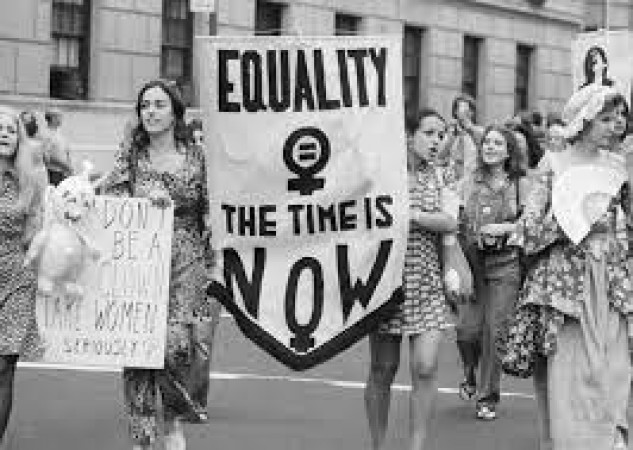
In modern society, the issue of women's rights has been a subject of significant controversy. Women have fought tirelessly for equal rights and opportunities, challenging traditional gender roles and advocating for gender equality. This article delves into the historical context, current challenges, and potential solutions to address the ongoing controversy surrounding women's rights in society.
Historical Perspectives on Women's Rights
The Struggle for Suffrage
In the late 19th and early 20th centuries, women fought for the right to vote, known as suffrage. This movement, known as women's suffrage, led to significant protests and demonstrations, ultimately culminating in the ratification of the 19th Amendment in the United States in 1920. The suffrage movement set a precedent for future endeavors to secure women's rights.
Challenging Gender Norms
Throughout history, women have faced rigid gender norms that confined them to domestic roles. However, pioneers like Amelia Earhart, Rosa Parks, and Marie Curie defied societal expectations and shattered gender barriers, demonstrating that women could excel in various fields beyond traditional roles.
The Current Landscape of Women's Rights
Gender Pay Gap
Despite significant advancements, the gender pay gap remains a pervasive issue. On average, women continue to earn less than their male counterparts for performing the same job. This disparity not only affects women's economic security but also perpetuates gender inequality.
Underrepresentation in Leadership Positions
Women continue to be underrepresented in leadership positions across various sectors. The "glass ceiling" phenomenon hinders their career advancement, limiting opportunities for women to make influential decisions in business, politics, and academia.
Violence Against Women
Violence against women remains a pressing concern globally. Physical, emotional, and sexual abuse affect women from all walks of life. Addressing this issue requires a collective effort to challenge harmful attitudes and behaviors.
Access to Education and Healthcare
In some parts of the world, women still face obstacles in accessing education and healthcare. Lack of education hinders their personal growth and economic independence, while limited access to healthcare affects their overall well-being.
Initiatives and Solutions
Gender Sensitization Programs
Implementing gender sensitization programs in schools, workplaces, and communities can help raise awareness about gender inequality and challenge harmful stereotypes. These programs foster empathy, understanding, and respect for all genders.
Equal Representation Policies
Promoting equal representation policies in both public and private sectors can help bridge the gender gap in leadership positions. Companies and organizations can implement diversity and inclusion initiatives to ensure equal opportunities for all.
Legal Reforms
Strengthening and enforcing laws against gender-based violence is crucial. Legal reforms that provide greater protection for victims and stricter punishment for offenders can help combat violence against women.
Access to Education and Healthcare
Governments and NGOs should work together to ensure access to quality education and healthcare for women. Scholarships and initiatives can be introduced to support girls' education, and affordable healthcare facilities can be established to address women's health needs. The controversy over the rights of women in society is an ongoing battle, but progress has been made thanks to the efforts of many courageous individuals and groups. By recognizing the importance of gender equality, challenging traditional norms, and advocating for policy changes, we can continue to advance women's rights. A more inclusive and equal society benefits everyone.
Govt Action Looms for Twitter after Viral Video of Manipur Women Paraded Naked
Manipur Unrest: CM Urges Thorough Probe into Viral Video's Authenticity
Sonia Gandhi Urges PM Modi for Manipur Discussion in Parliament